The content of the article
Juicy ruby fruit is loved by adults and children for its unique invigorating taste and a positive effect on well-being. Pomegranate is rich in valuable substances, therefore it is definitely useful in the diet at any age. However, you need to use the healing fruit correctly and carefully so as not to turn its valuable effect to the detriment of the body. This is especially true for delicate children's health. Let's figure out how to give pomegranates to a child without harm, and from what age it can be introduced into food.
What is useful pomegranate for the body of a child
Unusual southern fruit is distinguished by a high content of vitamins, minerals and valuable amino acids that are involved in metabolic processes, renewal and restoration of the body, form a strong immunity, improve digestion and blood composition.
Pomegranate contains few calories - only 60 per 100 grams of the product, and its nutritional value is very high. Therefore, pomegranate is useful on diets for weight loss, and in a children's diet allows you to saturate the body, without forcing the child to eat a lot of food. If the baby has a poor appetite, the fruit will come in handy.
The useful composition of pomegranate contains:
- Vitamin C, which supports the immune system, strengthens the walls of blood vessels and cleanses the body of harmful substances.
- Vitamins of group B, which are involved in the process of hematopoiesis, normalize metabolism and strengthen the nervous system.
- Vitamin P increases stamina and strengthens cells.
- Iron is necessary for the production of red blood cells and a healthy composition of the child’s blood, its activity, vitality and proper development depend on this.
- Magnesium, potassium, calcium, zinc and other minerals are also necessary for the development of the heart, normalization of digestion, mental development of the baby and normal cell renewal.
- Pomegranate also contains succinic, malic, tartaric, nicotinic acids and antioxidants, tannins, antimicrobial and antiseptic substances.
In the complex, all these components contribute to the protection of the child's body and its healthy development:
- Normalize appetite, promote the absorption of nutrients.
- They remove toxins and protect the body from the harmful effects of the environment.
- They stimulate the strengthening of immunity and increase the body's resistance to colds and infections.
- They have anti-inflammatory and healing effects.
- They help get rid of diarrhea, strengthen the stool, but together with the seeds, pomegranate has a cleansing effect on the intestines.
- They improve the blood composition, eliminate the symptoms of anemia and weakness, give strength and invigorate the body. In some cases, the activating properties of pomegranate replace coffee, which is not recommended in the diet of children, so a glass of juice before school will help the child concentrate, get tired less and be energetic.
- They kill worms and improve skin condition. If the child is painful and pale, pomegranate will help restore a healthy complexion.
- The use of pomegranate will help teenagers control oily skin and hair, get rid of acne and irritation.
- They help normalize mood, fight irritability and apathy.
- Stimulate the normal development of the skeleton and muscles, as well as internal organs.
- Protect the skin from rashes and damage and provide some prevention of allergic reactions.
That is why it is worth starting to introduce pomegranate into baby food - this will contribute to development, protect against frequent diseases and become a good source of nutrients for saturating the body. The most important thing is to be careful.
Can pomegranate harm a child’s body?
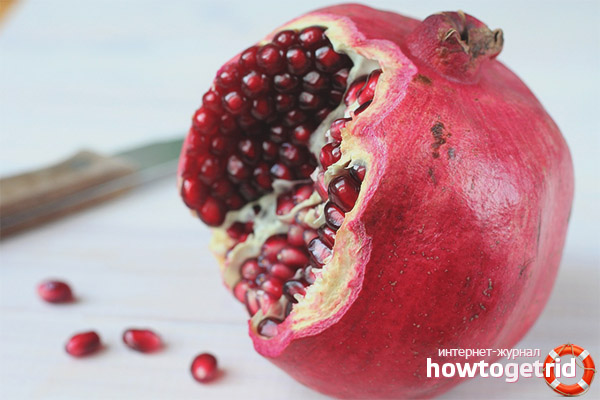
The ruby fruit contains a high concentration of fruit acids and other intensely active substances, which can cause discomfort and harm the body with excessive consumption of the product.
Acidic pomegranate juice can cause irritation of the gastrointestinal mucosa, and it must be understood that the situation is saved not by sugar, but by dilution of the juice.
Pomegranate seeds in large quantities can provoke indigestion in the children's intestines, so babies can be given strained juice with pulp without stones.
In no case should infants be given infusions on pomegranate membranes and peel. This is an excellent fastening and anthelmintic agent, but also the mentioned components contain alkaloids - heavy toxic substances that the child’s body is not yet able to split. In order not to spoil the child’s liver, choose other anthelmintic and antidiarrheal agents - for example, kermek root and pumpkin products.
Pomegranate can not be consumed in several cases:
- the presence of gastritis or other gastrointestinal lesions;
- increased acidity;
- renal failure;
- frequent constipation or acute hemorrhoids;
- individual intolerance (allergic reactions to the fruit).
During pregnancy, pomegranate will be very useful - it will establish a metabolism, contribute to a healthy blood supply to the fetus, and also support the immunity of a woman and help cope with ailments and nausea. However, the juice should be drunk strictly in diluted form and combined with other fruit components, giving a slight laxative effect. This will help prevent constipation. Also, women in position should not drink tea and infusion on the partitions, which can be harmful to the fetus. The only contraindication is an increased muscle tone of the uterus. If you have a miscarriage, you should not use foods such as pomegranate.
In general, the fruit rarely provokes allergies, but it may well cause irritation when overeating the product or from a habit. This is expressed by skin rash, redness, fever, heartburn, general discomfort. At home, you can correct the situation with a starchy drink - for example, 1/3 cup of potato juice. But then acquaintance with pomegranate should be postponed or significantly reduced portions.
Interesting fact: pomegranate can be consumed even with diabetes and overweight. Sweet fruit saturates the body well and replaces many bad desserts. However, before introducing it into the child’s diet, you need to consult a doctor.
When to start giving pomegranates to children and how to do it
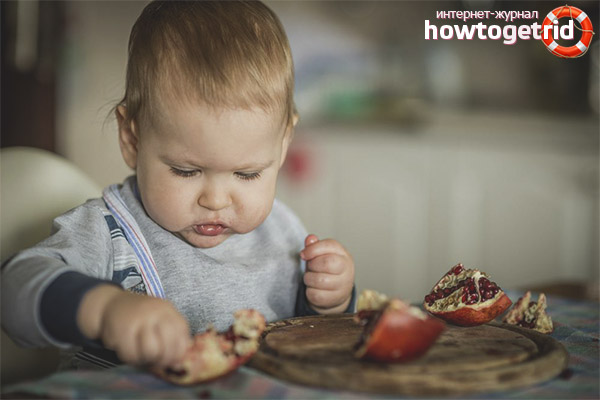
You can introduce a baby to a pomegranate for the first time after 1 year old. First, the serving should be minimal - 1 teaspoon of juice, while it should be diluted with water in a ratio of 1: 1. After 2 years, you can give 1-2 tablespoons, after three - half a cup, in preschool and primary school age, you can offer your child fruit with pulp and up to 400 ml of juice per day. However, you should not get carried away with pomegranate - 1-2 doses per week is enough to saturate the body, support hemoglobin and immunity.
The exception is periods of illness when the body needs recharge. Most often, pomegranates are recommended for anemia in childhood and adolescence, because it is this fruit that provides optimal absorption of iron, ahead of apples, beets and other products. In this case, juice or fruit must be consumed for a long time: 2 weeks, then take a break of 10-15 days and take the course again.
In the cold season with frequent colds and in the summer to prevent infectious diseases and poisoning, pomegranate juice can be drunk regularly in small portions.
It's important to know: try not to give your child pomegranate seeds or make sure that he uses a small amount. By themselves, they are very useful, but difficult for the child’s body.When making juice at home, the bones can be dried and used as a nourishing scrub for washing and warming massage.
Pomegranate grains can be offered to children after 4 years old as an additive in salads and cereals, and mix juice or fruit drink with other berry and fruit extracts:
- from anemia - with an apple;
- from colds - with black currants and cloudberries;
- for general strengthening of the body and energy - with pineapple and strawberries.
For flavor, pomegranate juice can be poured into tea, and syrup from this fragrant fruit will be an excellent impregnation for baking and an addition to sour-milk desserts.
How to choose a suitable fruit
For a child’s sensitive body, only ripe sweet pomegranates should be selected. Ripe fruits are distinguished by several signs:
- A dry, smooth crust. The juicy shell suggests that the fruit is still greenish.
- The correct shade - from pink-coral to deep burgundy - depending on the variety. The peel may be whitish, but not yellow or green.
- Poured grains can protrude through the peel, forming a tuberous relief - this is good, there will be less toxic membranes in such a fruit.
- There should be no cracks or damage on the pomegranate, because harmful microorganisms can enter and accumulate in them. In addition, the sweet pulp quickly begins to ferment in case of squeezing. The fruit should not have soft patches - this suggests that inside the pomegranates it began to rot.
- The sweetness of the fruit does not always depend on its color and size. Light pink large pomegranates are usually less acidic and well suited for a children's diet, and crimson fruits are more effective for treating anemia - they have a much higher iron content, but such juice must be diluted carefully.
Helpful advice: to protect the child from the use of preservatives and dubious additives, it is better not to buy pomegranate juice, but to do it yourself. In an electric squeezer, this is not very effective, but there is a simple and quick way.
Please note that grains and juice have a coloring effect on the skin and dishes. To preserve the antioxidant properties of the juice, it is advisable to avoid contact with metal products. Glass, ceramic and wooden appliances are ideal, and so that the juice does not splatter during the cooking process, it is better to choose a tall bucket or bowl.
It is not customary to make jam from this fruit, but a kid can like fragrant and unusual jelly cooked on pectin. Hard meat is also pickled in pomegranate juice so that it becomes tender and piquant in taste.
The baby’s health is very important to maintain from the first years of life, and how nice it is when you can do it with the help of delicious products. Try pomegranates - and let the little one develop to the joy of loved ones.
Video: the benefits and harms of pomegranate

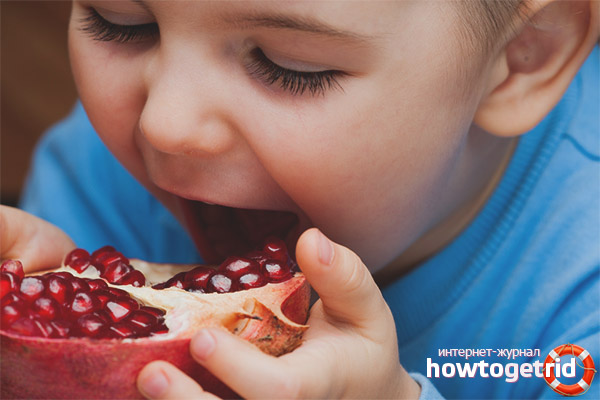
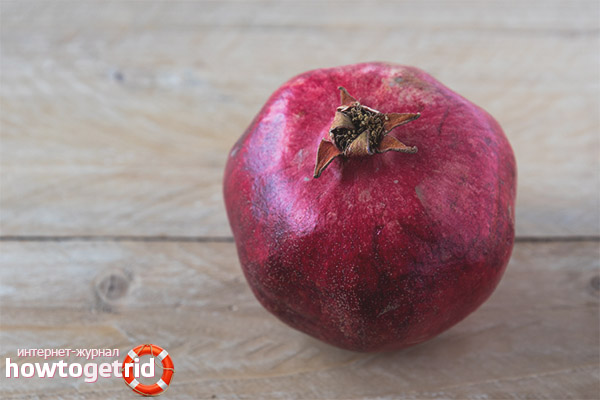
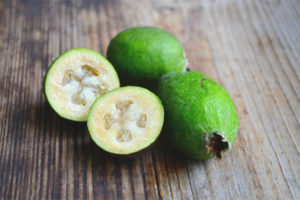

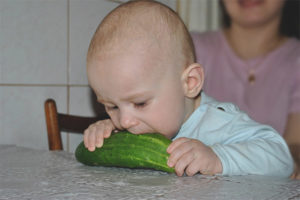
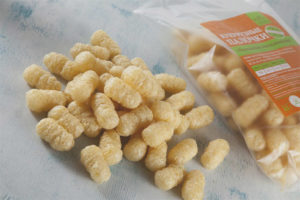
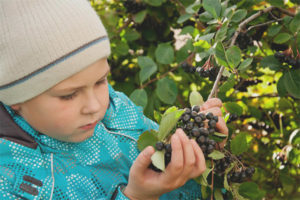

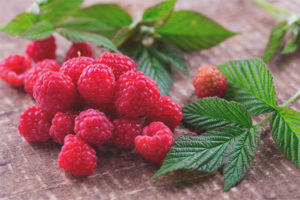
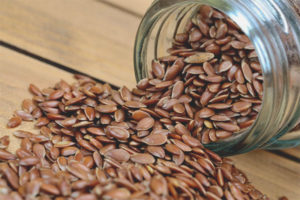
Submit